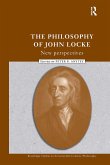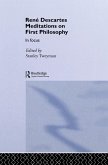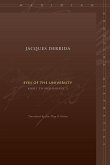In the 1890's, when fields such as psychology and philosophy were just emerging, turf wars between the disciplines were common-place. Philosophers widely discounted the possibility that psychology's claim to empirical truth had anything relevant to offer their field. And psychologists, such as the crazed and eccentric Otto Weinegger, often considered themselves philosophers. Freud, it is held, was deeply influenced by his wife, Martha's, uncle, who was also a philosopher. The tension between the fields persisted, until the two fields eventually matured and grew apart. Until the publication of Martin Kursch's masterly work "Psychologism, few philosophers and psychologists have attended to their originally unhappy, turn-of-the-century engagement. Martin Kusch explores the origins of psychologism in Germany and "fin de siecle Vienna by examining two major figures of twentieth century philosophy: Frege and Husserl. As one of the few serious works on Frege, Kusch trenchantly and clearly reconstructs the debate and the context in which it flourished. "Psychologism will prove to be a key work of intellectual history on a subject which has largely been overlooked and, above all, understudied.








